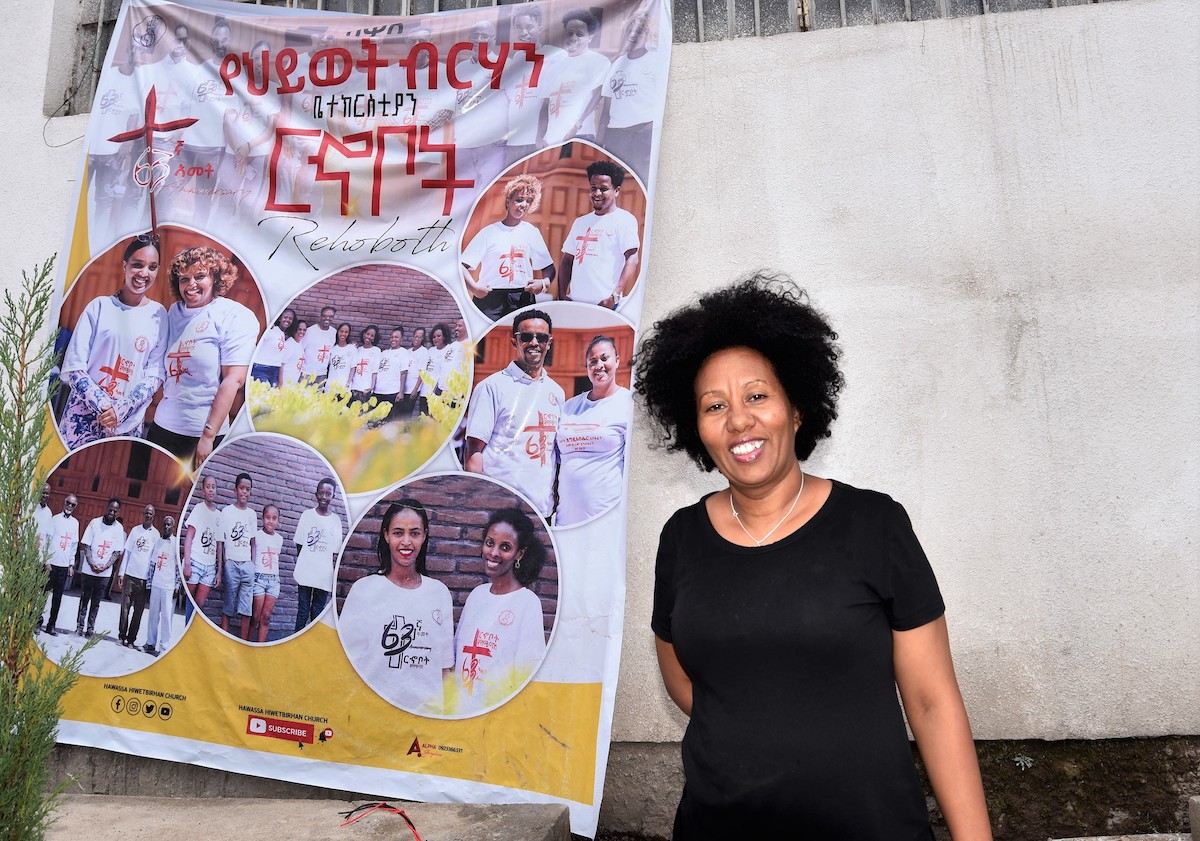In the Words of Senait Negash: “We Built Trust in the Congregation. Women and girls in the church now to come to us to report Violence”
Date:
Senait Negash is one of the five Leaders of Women’s Ministry at the Hiwot Berhan Evangelical Church in Hawassa. The church, that has 27 congregations in Sidama region of Ethiopia, is one of the 7 Evangelical Churches in the region targeted by UN Women’s supported project on VAWG prevention and response through the meaningful engagement of faith actors and religious institutions.

“For a long time, the Women’s ministry at our Church was only focused on spreading the Gospel. Following the selection of our church for the project, we got various trainings on VAWG prevention and response as well as the role we can play to address the issue as Faith Actors. We were shocked that we had never addressed and integrated VAWG prevention work within the church setting despite the challenges on the ground. We were able to recognize various forms of VAWG and realized that it was happening in the church where women and girls are suffering in silence. As a women’s ministry, we decided VAWG to be one of our areas of work and proposed the same to the Church leadership. Convincing the leadership was not easy at first as we were told that the idea might create division among women and men in the church. We, as leaders of the women’s ministry, relentlessly strived to show that violence is happening in the church setting in a concrete manner. We managed to convince the leadership to allocate budget in our annual work plan to address VAWG through various awareness raising strategies. This enabled us to build the capacities of 75 Sunday School teachers, leaders of the youth groups and parents to reach their constituencies including children, adolescents, and youth to promote favorable and respectful relationships.
There haven't been any cases that necessitated legal action however, one incident involving a former teacher who exhibited inappropriate behavior towards female congregation members was brought to our attention. Despite his denial of any misconduct, few students voice their concern leading to his indefinite removal from teaching and other church services. It is commendable that the church's senior leadership addressed this issue so promptly. We are glad that we developed trust among the congregation members that women and girls in the church now have the confidence to come to us and report VAWG cases, knowing there is someone that will stand up for them.
With the support of UN Women, Norwegian Church Aid (NCA) has been partnering with aith Actors since 2019. One of the programme’s key interventions is engaging women of faith structures taking into consideration their position to reach out to women from different walks of life to access opportunities for dialogue, information sharing, and peer support. The Women of Faith are structured women groups in different faith settings that constitutes Tsewa Mahiber, women prayer group, women pastors, women religious leaders, deaconesses among others. These structures also bring together mixed groups of women from different cultural, economic, and social spheres, having the potential to empower women who would otherwise remain marginalized.
Over the last four years, the capacity of 41 women of faith structures of the Ethiopian Orthodox, Evangelicals and Muslim faith have been strengthened in Amhara, Sidama, Gambella and Somali regions through different capacity building support. Before the programme started, the focus of the women structures was purely spiritual, but the programme introduced the importance of integrating VAWG prevention work in their structure and advocated for leadership commitment and ownership. Through these structures, more than 4000 women were reached. The Women of Faith reach were not limited to their respective congregation but also reaching a wider community through outreach and played a paramount role in VAWG prevention and response at grassroot level through community awareness creation, supporting vulnerable groups, provision of para-counselling, establishment of networks and referral of cases. “